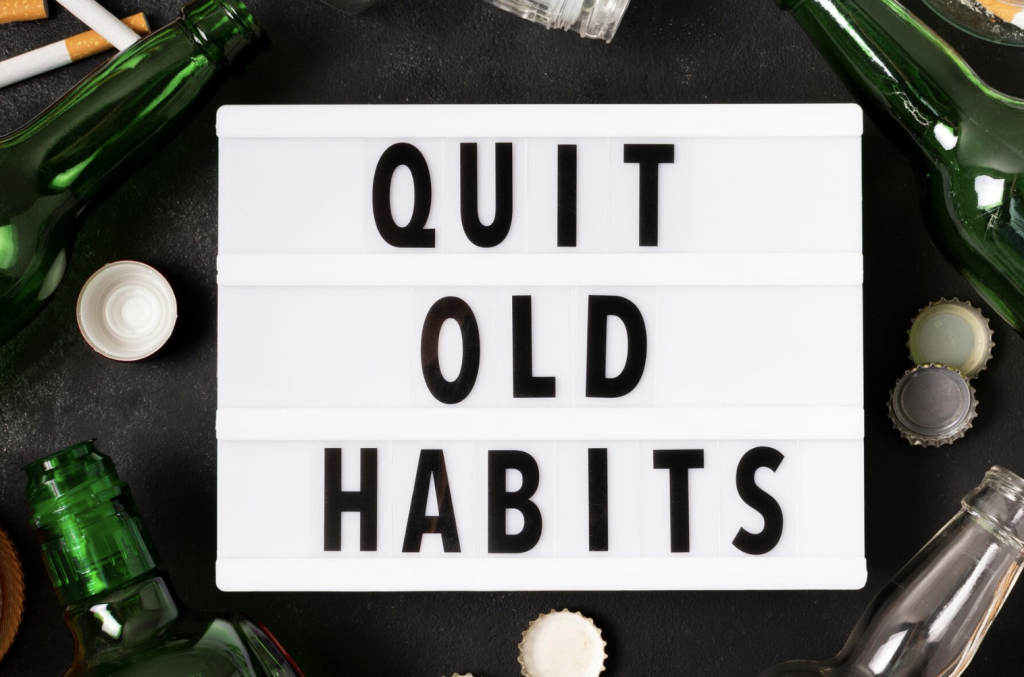What you eat directly impacts your mood, energy levels, and overall mental health. It’s no secret that what we consume affects our physical health, but did you know that it can also shape our emotional and mental well-being? At Better Mind Daily, we believe that nutrition is the foundation of mental health. The right foods not only nourish your body but can also fuel your mind, elevating your mood, improving your energy, and helping you feel your best both mentally and physically.
In today’s fast-paced world, it’s easy to neglect the importance of what we eat. Many of us reach for quick, processed meals or snacks that offer little nutritional value. However, adopting a balanced and nourishing diet is essential for improving your mental clarity, emotional stability, and overall well-being. By fueling your body with the right nutrients, you can elevate your mood, enhance cognitive function, and reduce stress, anxiety, and even depression.
The Powerful Connection Between Nutrition and Mental Health
The link between food and mood is stronger than most people realize. Our brains are incredibly sensitive to the nutrients we consume, and the food we eat can have a profound impact on our mental state. Here’s how proper nutrition helps support mental wellness:
1. Boosts Mood and Reduces Stress
Certain nutrients, such as omega-3 fatty acids, B vitamins, and magnesium, play a critical role in regulating mood and reducing symptoms of depression and anxiety. Omega-3s, found in fatty fish like salmon, have been shown to improve brain function and protect against mental health disorders. Magnesium, present in foods like leafy greens and nuts, helps regulate the body’s stress response and supports the nervous system, promoting relaxation and calm.
Additionally, complex carbohydrates like whole grains release serotonin in the brain, which is the neurotransmitter responsible for regulating mood and promoting feelings of happiness. By choosing whole foods that nourish your body and mind, you can significantly reduce stress levels and maintain emotional balance.
2. Improves Cognitive Function
Nutrition directly influences cognitive function, including memory, focus, and concentration. Nutrients like antioxidants, which are found in fruits and vegetables, help protect the brain from oxidative stress, which can impair memory and decision-making abilities. Foods rich in vitamin E, such as nuts, seeds, and leafy greens, also support brain health by reducing inflammation and supporting cognitive function.
The brain thrives on high-quality fuel. For optimal cognitive performance, it’s essential to incorporate brain-boosting foods like avocados, blueberries, and eggs into your diet. These foods provide the essential nutrients your brain needs to function at its best.
3. Enhances Energy Levels
Your body relies on the food you eat to fuel your energy levels. A diet that’s rich in processed sugars and refined carbs may give you an initial energy boost, but it’s followed by an energy crash that leaves you feeling drained and sluggish. On the other hand, nutrient-dense foods like whole grains, fruits, and vegetables provide a steady source of energy throughout the day, preventing the highs and lows that can affect your mental and physical performance.
By choosing nutrient-dense foods, you’re ensuring that your body and mind are properly fueled to take on the challenges of the day, whether at work, in your personal life, or when managing stress and emotions.
4. Supports a Healthy Gut and Mental Wellness
It may come as a surprise, but your gut health plays a vital role in your mental health. The gut-brain connection is well-documented, and research has shown that a healthy gut microbiome is essential for good mental health. The foods you eat influence the diversity and composition of the bacteria in your gut, which, in turn, can affect your mood, stress levels, and cognitive function.
Probiotic-rich foods like yogurt, kefir, and fermented vegetables help promote a healthy gut microbiome, while fiber-rich foods such as whole grains, beans, and fruits support digestive health and overall mental well-being. By nourishing your gut, you’re also supporting your brain, enhancing your mood, and improving your ability to handle stress.
5. Regulates Blood Sugar and Prevents Mood Swings
Unstable blood sugar levels can lead to irritability, anxiety, and mood swings. When your blood sugar spikes and crashes, it affects your energy levels and your ability to focus. By eating balanced meals that include a combination of protein, healthy fats, and fiber-rich carbs, you can maintain steady blood sugar levels and keep your mood stable throughout the day.
Incorporating foods like nuts, seeds, lean proteins, and vegetables can help regulate blood sugar, reducing the risk of mood swings and promoting emotional stability.
What to Eat for Better Mental Health
The key to a healthy mind is a balanced, nutrient-rich diet. Here are some of the best foods for mental well-being:
1. Fatty Fish
Fish like salmon, sardines, and mackerel are rich in omega-3 fatty acids, which are essential for brain health. Omega-3s have been shown to reduce symptoms of depression and anxiety and improve cognitive function.
2. Leafy Greens
Spinach, kale, and other dark leafy greens are packed with magnesium, a mineral that helps regulate stress and supports the nervous system. Magnesium is also linked to improved sleep quality, which is essential for mental wellness.
3. Berries
Berries, especially blueberries, are rich in antioxidants, which help protect the brain from oxidative stress. Antioxidants can improve memory, focus, and cognitive function, while also reducing inflammation in the brain.
4. Nuts and Seeds
Nuts and seeds, like walnuts, flaxseeds, and chia seeds, are excellent sources of healthy fats and magnesium, both of which are crucial for brain health. They also help improve mood and reduce stress by supporting the nervous system.
5. Whole Grains
Whole grains like oats, quinoa, and brown rice provide complex carbohydrates, which help regulate blood sugar levels and provide a steady source of energy throughout the day. These foods are also rich in B vitamins, which are essential for mood regulation and mental health.
6. Avocados
Avocados are packed with healthy fats, including omega-3s, and provide a rich source of vitamin E, which helps protect the brain from cognitive decline. They also improve blood flow to the brain, enhancing cognitive function and supporting overall mental well-being.
7. Eggs
Eggs are a great source of protein and B vitamins, which are essential for mental health. They contain choline, a nutrient that supports brain health and improves memory and cognitive function.
8. Dark Chocolate
Dark chocolate, in moderation, can boost your mood by increasing serotonin levels in the brain. It’s also rich in antioxidants and magnesium, which help support brain health and reduce stress.
A Balanced Approach to Nutrition and Mental Health
Nutrition is one of the most powerful tools you have to support your mental well-being. By fueling your body with the right foods, you can elevate your mood, enhance cognitive function, and reduce stress. At Better Mind Daily, we believe that taking care of your mind starts with nourishing your body. The right foods have the power to transform your mental health, helping you feel more focused, energized, and emotionally balanced.
Remember, mental wellness is a journey, and every step you take toward nourishing your body is a step toward a healthier, happier mind. Choose foods that support your well-being, and experience the transformative power of a balanced diet.
Fuel your mind. Nourish your body. Elevate your well-being.





